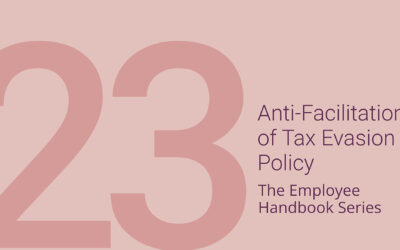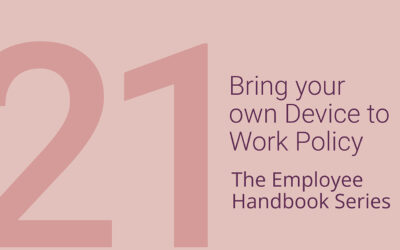EMPLOYMENT LAW FOR EMPLOYEES
Tribunal Support for Employees
Why take a claim to the Employment Tribunal?
Taking your claim to the Employment Tribunal is usually the last resort following a series of steps to try and negotiate a settlement with an employer. Our expert employment lawyers can help with the negotiations.
If all attempts to negotiate a settlement have been exhausted without success then taking your claim, to the Employment Tribunal may be necessary in order for the Tribunal to adjudicate on the evidence and determine the outcome.
How do employment law solicitors help with Employment Tribunals?
We advise employees on the merits of a potential claim and assist in negotiating settlements where possible. If a tribunal claim is necessary we will collate evidence, prepare and file a claim, instruct and barrister where one is required and attend the Tribunal Hearing.
What might the outcome be in an Employment Tribunal?
Whenever we take on a new client, whether that be providing advice and assistance or formally representing an employee at tribunal, we make sure that you understand the likelihood of a successful outcome in your case, and what that might look like.
Compensation:
Firstly, you need to consider the financial loss you have suffered, including loss of earnings, benefits, and pension contributions. Additionally, you should also consider the injury to feelings caused by the discrimination, as well as any personal injury suffered. The bad behaviour of your employer may also be taken into account. It is essential to prepare a schedule of loss detailing all the amounts you are claiming, and keep evidence of any extra expenses incurred. If you are still employed, you should calculate the difference in salary if you didn’t get a promotion and show that you are applying for promotions elsewhere. If you lost your job, you should keep documents like payslips or P60 to prove your income loss. The tribunal may also award compensation for loss of future earnings if it thinks it will take you longer to find a job. A reasonable settlement agreement will depend on the specifics of your case and can be negotiated by our expert team of employment solicitors.
Unfair Dismissal:
The outcomes of an unfair dismissal claim at an employment tribunal depend on various factors. If the tribunal finds that you have been unfairly dismissed, you may be entitled to compensation, which includes a basic award and a compensatory award. The basic award is based on your length of service and gross weekly pay, while the compensatory award covers past and future losses resulting from the dismissal, including any company benefits. The amount of compensation may be reduced if you have put colleagues at risk, stolen from your employer or otherwise contributed to your dismissal. The maximum amount for a year’s gross pay is £105,707 for dismissals on or after April 2023.
Reinstatement and re-employment:
Reinstatement or re-employment by your employer is a possibility in cases of unfair dismissal. If you are successful in your claim for unfair dismissal, the employment tribunal can order your employer to reinstate you or re-employ you in a similar position. However, this is not always possible or practical, and the tribunal may instead award compensation for loss of earnings. It’s important to seek the advice of an experienced employment solicitor who can help you understand your options and guide you through the process.
Declaration:
Declarations are formal statements made by the tribunal to clarify legal rights and obligations when there is no practical remedy available. Declarations can be issued by the tribunal whether or not any other order is made. Declarations can establish legal precedent for future cases and can be particularly useful in cases where there is a dispute over the interpretation of a contract or a legal point. It’s important to seek the advice of an experienced employment solicitor to understand the implications of a declaration and how it may affect your case.
Recommendation:
A recommendation is a non-binding statement made by the tribunal to suggest a course of action that would resolve the dispute between the parties. The tribunal may make a recommendation if it determines that an employer has acted unfairly or unlawfully but there is no practical remedy available. Unlike a declaration, a recommendation does not establish legal precedent, but it can be persuasive in future cases. It’s important to note that a recommendation is not legally enforceable, but an employer who fails to comply with a recommendation may face adverse publicity or reputational damage. If you are considering making a claim to an employment tribunal, it’s important to seek the advice of an experienced employment law solicitor to understand the implications of a recommendation and how it may affect your case.
Financial penalties:
When an employment tribunal finds in favour of a claimant, it has the power to award various remedies. One of these remedies is a financial penalty that can be imposed on employers who breach employment law, regardless of the nature of the remedy awarded to the claimant. The penalty is designed to encourage compliance and reduce deliberate breaches and is subject to the employer’s ability to pay. The amount of the penalty may be reduced if the employer complies within 21 days. The tribunal considers factors such as employer size, duration of breach, and behaviour of the employer and employee when deciding if there are any aggravating features in the breach.
Costs:
Employees do not have to pay a fee to file an employment tribunal claim. However, it is important to note that bringing a claim can be a costly and time-consuming process for both the employer and the employee. In terms of costs, the claimant does not have to pay any fees to the tribunal, but they may have to pay their own legal fees unless they can find a solicitor who will work on a ‘no win, no fee’ basis. If the claimant wins, they may be able to recover some of their legal costs from the employer. On the other hand, if the claimant loses, they are usually not required to pay their employer’s costs, unless the claim was unreasonable or they behaved badly during the process. It is important to seek expert legal advice before making a claim to consider all the potential costs involved.
Interest:
Interest in the context of an employment tribunal refers to the amount of money awarded to the claimant to compensate for losses resulting from the employer’s breach of employment law. The interest is calculated from the date of the loss until the date of the award and is intended to put the claimant in the same financial position they would have been in had the breach not occurred.
The interest rate used is the same as that used for county court judgments, which is currently 8%. However, interest can be awarded at a different rate if the tribunal considers it just and equitable to do so. It’s worth noting that interest is subject to income tax and should be declared on the claimant’s tax return.
Penalties for unpaid awards and settlements:
If an employer fails to pay an award or settlement ordered by an employment tribunal, they may face penalties. The penalties can include an additional sum to be paid to the claimant, known as a “penalty payment,” which can be up to 50% of the unpaid award or settlement. In addition, the employer may be publicly named and shamed by the government, and may also face court action, including the seizure of assets or orders for the employer’s directors to pay the debt personally. It is important for employers to comply with tribunal orders and settlements, as the penalties for failing to do so can be severe.
Public naming for unpaid Tribunal awards:
Employers who fail to pay employment tribunal awards and settlements may face public naming and shaming. This means that their name, the amount of the award or settlement, and the fact that they have failed to pay will be published on the government’s website and in a public register. The purpose of public naming is to encourage compliance with tribunal orders and settlements and to deter other employers from failing to pay. It is important for employers to comply with tribunal orders and settlements to avoid these severe penalties and the reputational damage that comes with public naming.
Why Choose Atkins Dellow as your Employment Law Solicitors?
Competitive Fees
We offer no obligation chats, just get in touch.
Dedicated Solicitors
We’ll go the extra mile to offer you hassle-free legal advice.
No Legal Jargon
No jargon. We speak in plain English just like you.
Care
Regardless of the challenges, we look after your interests.
Employment Tribunals for Employees FAQs
How do I know how strong my case is before starting a tribunal claim?
Your experienced employment law solicitor will be able to advise on how strong your claim is and how compelling your evidence is, before taking the case to an employment tribunal. This information and advice is important to heed, as it can help you to determine whether the case is worth your time and financial investment in terms of the solicitor fees.
How do I start or lodge a tribunal claim?
Virtually all employment tribunal cases start out with a conciliatory hearing under the guidance of a solicitor or employment lawyer, who will facilitate a meeting between you and your employer to discuss a potential agreement. The purpose of this is to avoid tribunal where possible.
Those looking to pursue a case beyond this initial meeting must apply on the UK government website with an ET1 form – answering 15 questions which outline your claim and the evidence. This will then be submitted and sent to your employer who can counter the information via an ET3 form. From there, all information is passed to the tribunal for hearing.
Who pays for the solicitor fees?
As the claimant, you will need to pay the legal costs of any advice you receive. It is worth noting that you do not need a solicitor to represent or inform you, and that there is no fee associated with the Employment Tribunal itself. Rather, if you seek specific legal advice or support, this will usually be charged by the solicitor on an hourly rate.
What is the Employment Tribunal?
The Employment Tribunal is an independent legal body that hears and resolves disputes between employers and employees in England, Wales and Scotland.
Can I bring a claim to the Employment Tribunal without going through any internal procedures?
In most cases, employees should attempt to resolve the dispute with their employer before bringing a claim to the Employment Tribunal. It will usually be quicker, less costly and less stressful if a dispute can be resolved and a claim settled without the need for formal proceedings before a tribunal. However, there are exceptions, such as claims related to discrimination, which can be brought directly to the tribunal without exhausting the employer’s internal procedures.
How long do I have to bring a claim to the Employment Tribunal?
In general, you must submit your claim to the Employment Tribunal within three months from the date of the incident or the last instance of the ongoing issue. We must stress how important it is to act promptly and seek the right legal advice to ensure that you preserve your right to bring a claim to the tribunal if necessary.
What types of claims can be brought to the Employment Tribunal?
The Employment Tribunal handles a wide range of employment-related claims, including unfair dismissal, discrimination, harassment, breach of contract, redundancy payments, whistleblowing, and claims related to wages and working time regulations, among others.
Do I need legal representation to bring a claim to the Employment Tribunal?
Like many things in life, it is possible to DIY a tribunal claim, but it may prove more difficult than first appeared, and the outcome may not be as good as it might have been if a professional had been engaged. Law can be complex, and having a skilled lawyer on your side can significantly increase your chances of success in presenting your case effectively.
What are the potential outcomes of a claim in the Employment Tribunal?
The Employment Tribunal can order various remedies to the successful claimant. These include: for financial loss; reinstatement or re-engagement in your job; a declaration of rights; or recommendations for the employer to take specific actions to rectify the situation. The appropriate remedies will depend on the particular circumstances of your case. Getting the right advice from the outset, on what the outcome might be, is often a determining factor in the handling of a claim and negotiations along the way.
What is the process for bringing a claim to the Employment Tribunal?
The process involves several steps, including completing the claim form (ET1), gathering evidence, exchanging documents with the respondent (your employer), possibly instructing a barrister, attending a preliminary hearing, preparing and attending a final hearing, and receiving the tribunal’s decision. The process can be complex, and our employment lawyers can guide you through each stage.
Can I settle my claim before it reaches the Employment Tribunal?
The majority of claims are settled before cases reach the tribunal. Settlement discussions may take place at any stage of the claim, and mediation or settlement agreements can be explored as an alternative to going through a full hearing. Our employment lawyers will explore every angle with you and will assist in negotiating a settlement on your behalf if that is appropriate and the best result can be achieved..
What are the potential costs involved in bringing a claim to the Employment Tribunal?
Employees don’t generally pay any fees to bring a claim to the Employment Tribunal. You may have to pay witness expenses, and, in rare circumstances pay towards an employer’s costs if the claim has been brought unreasonably, but this would be highly unusual. However, it is essential to consider potential legal costs if you decide to hire an employment lawyer. In a limited number of circumstances we may offer services on a “no win, no fee” basis or provide alternative fee arrangements, which can be discussed during our initial conversations. A cost:benefit analysis is very high on the agenda in our preliminary discussions with you, as well as the time and energy involved in any dispute resolution process.
What can I do if the Employment Tribunal makes a decision that I disagree with?
If a judgment is delivered that you believe to be incorrect or unfair, you may have the right to appeal to the Employment Appeal Tribunal (EAT). Again, it is important to seek legal advice promptly, as there are strict time limits for filing an appeal.
Employment Law Specialists at Atkins Dellow
Related Insights
Anti-facilitation of Tax Evasion Policies in Employment Law
Introduction to Anti-facilitation of tax evasion policy As a matter of law employers must give their employees a written document which covers the key terms of the employment relationship. On top of this, it’s good practice for employers to have a staff handbook which...
Menopause Policies in Employment Law
Introduction to Menopause Policy As a matter of law employers must give their employees a written document which covers the key terms of the employment relationship. On top of this, it’s good practice for employers to have a staff handbook which includes the...
Bring Your Own Device to Work Policy for Employers
Introduction to Bring Your Own Device to Work Policy As a matter of law employers must give their employees a written document which covers the key terms of the employment relationship. On top of this, it’s good practice for employers to have a staff handbook which...
Still Need Help?





